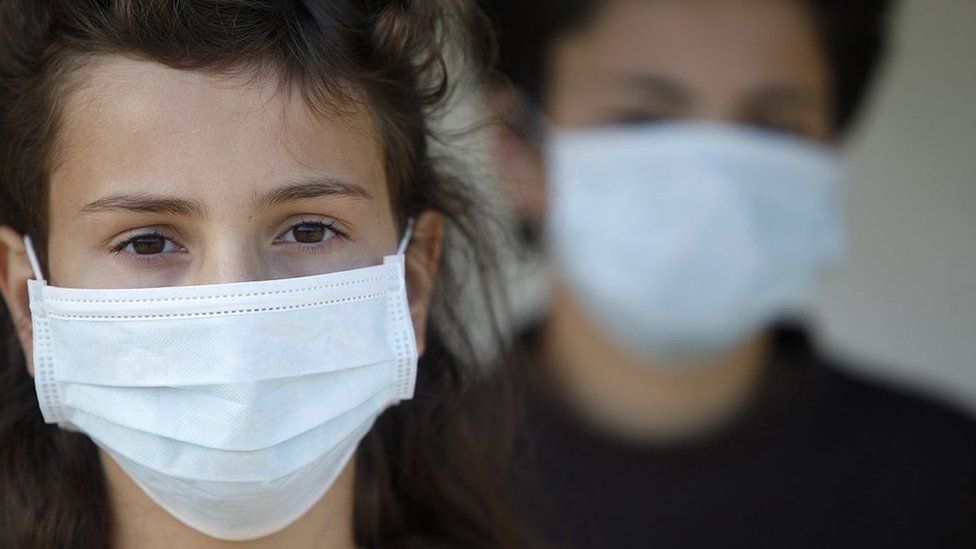Coronavirus: What are different countries doing about wearing masks at school?
- Published
- comments

Secondary school children in France will return to school soon and will have to wear masks in class
Secondary school children in France have been told they can go back to school next month but only if they wear a mask.
The country hopes that this will help to keep down the spread of coronavirus once restrictions are relaxed there.
France will make wearing a mask compulsory in secondary schools and on public transport when it starts easing its lockdown measures in May.
All pupils aged 11-15 will be expected to wear masks and no more than 15 children will be allowed in each classroom at any one time.
What is PPE? And why do people wear masks?
What's happening in other parts of the world?
Across the world different countries are coming up with their own guidance on wearing a mask.
The World Health Organization (WHO) suggests people should wear protective masks only if they are sick and showing symptoms, or if they are caring for people suspected to have the disease.
In the UK, the general advice is that there's not enough evidence to suggest wearing masks is helpful, but that's constantly under review.
Although schools remain closed across the UK, the Scottish government has issued guidelines which say covering your face - with a scarf, for example - could be useful in places like on public transport or in food shops, where social distancing was difficult.
The UK Health Secretary said there's not enough evidence to suggest we should all wear masks
Germany
In Germany some rules change in different parts of the country but it's mandatory everywhere to wear cloth masks on public transport and within shops.
The media there is also reporting that in some places children in schools will wear masks in the corridors and whilst going on breaks, but they don't need to wear them in the classroom.
Students will sit in their lessons spaced apart and there's more cleaning with disinfectant.
China
Students in China are wearing masks to school
Older students in China's biggest cities are starting to go back to school.
Students have returned to classrooms in Shanghai and Beijing, and schools in other parts of China re-opened several weeks ago.
Most students are wearing masks and students sit at a social distance from each other.
New Zealand
New Zealand says transmission of the virus has stopped there and Prime Minister Jacinda Ardern says they have effectively eliminated the virus.
Now schools and businesses are slowly starting to re-open.
The advice around masks there is similar to the UK's, the New Zealand Ministry of Health say the general public don't need to wear them, but people who are likely to come into contact with the disease should do.
Denmark
Children in Denmark started going back to school last week.
Students in Denmark are practicing social distancing in the classroom
It's not compulsory for children or teachers here to wear masks, so everyone is making an effort to stick to hygiene and distancing rules.
Israel
Schools and kindergartens will gradually reopen from 3 May, but the return of pupils to school will vary according to their age.
Children up to the age of six will return in small groups and attend on different days. Primary school children will learn in groups of no more than 15 pupils and desks must be placed two meters apart.
Pupils will have to wear masks - except when doing PE - and break times will be staggered to ensure that groups do not meet each other. Older pupils will continue learning from home.
If you are worried about the coronavirus, psychologist Laverne Antrobus has got some helpful advice.
- Published18 April 2020
- Published4 February 2020
